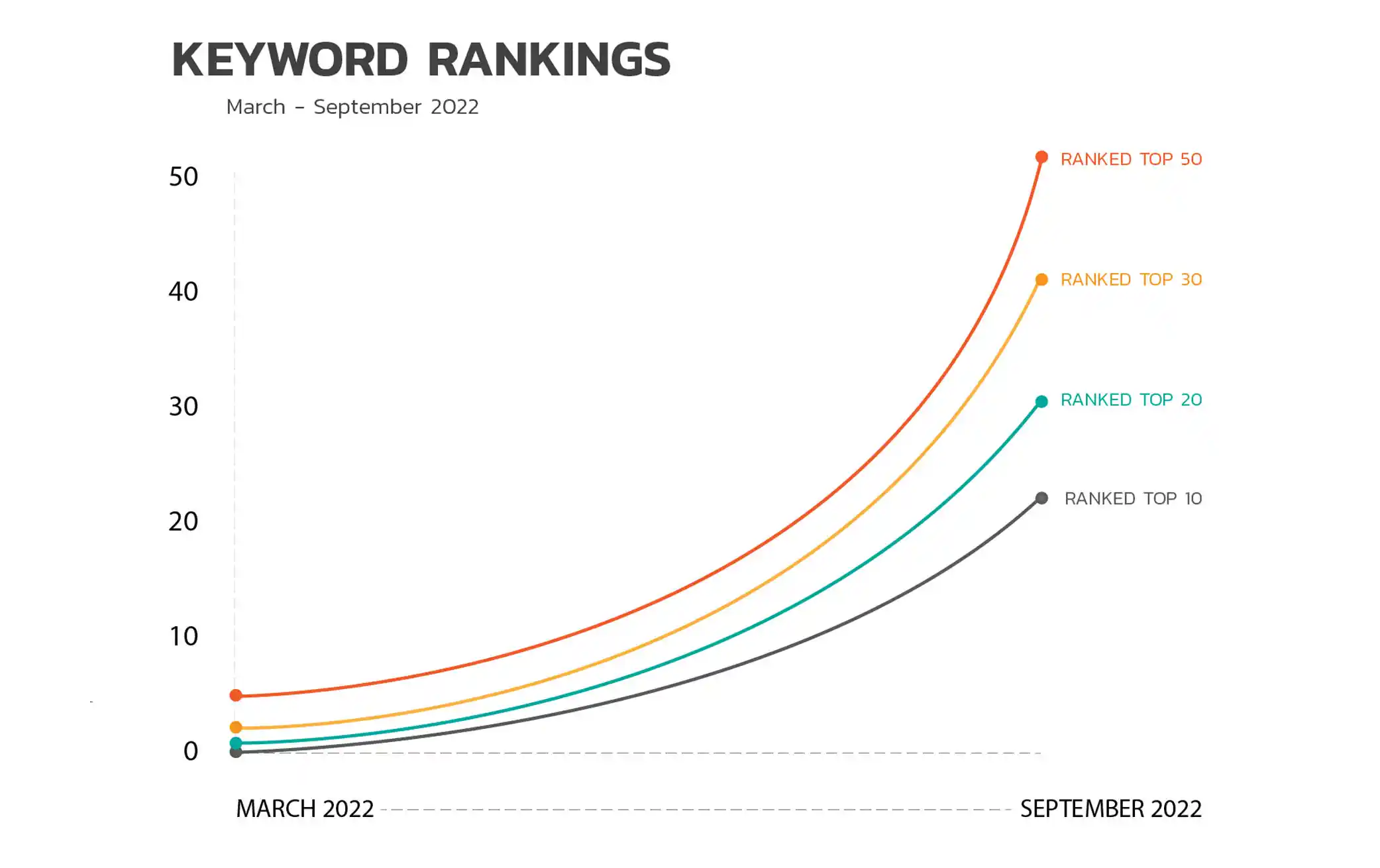SEO-Driven Web Design
A Guide for Business Owners
In today’s digital landscape, a website is more than just a virtual storefront; it’s an essential tool for visibility and engagement. Our philosophy is that merging SEO fundamentals with modern web design techniques is the key to creating websites that not only look stunning but also perform exceptionally well in search rankings. Here’s how business owners can leverage this synergy to boost their online presence.

In this article
- The Importance of SEO-Driven Web Design
- Key Elements of SEO-Friendly Web Design
- Common Mistakes to Avoid
- Why Collaboration Matters
- Best Tools for Implementing SEO-Driven Web Design Principles
- More Than A Trend
The Importance of SEO-Driven Web Design
Web design and SEO are no longer separate disciplines. Google evaluates entire website experiences, from load times to user navigation patterns, making thoughtful design choices crucial for search success. A beautiful website that isn’t optimized for search engines risks being invisible, while an SEO-friendly site with poor design can repel visitors. The goal is to strike a balance where aesthetics meet functionality.
Key Elements of SEO-Friendly Web Design
To ensure your website ranks high and engages visitors effectively, focus on these essential components:

- 1. Mobile-First Design
With over 6 billion mobile internet users globally, optimizing for mobile is non-negotiable. Responsive designs adapt seamlessly across devices, improving user experience and boosting rankings. Start with mobile-first layouts to create leaner and faster experiences that prioritize essential content. Industry matters when it comes to mobile versus desktop. We've found that mobile can be as low as 45% of visitors (International Jet and SmartSound) and as high as 70% (VV Mixers). Regardless, mobile design is important, and analytics will tell you how important it is. - 2. Page Speed Optimization
Page speed is a critical ranking factor. Websites loading under two seconds see higher engagement and better rankings. Optimize images, streamline code, and leverage caching techniques to ensure fast load times without sacrificing visual quality. These things are part of the basic groundwork we do when building websites. - 3. Clean Site Architecture
A well-structured site helps both users and search engines navigate your content. Use intuitive menus, clear hierarchies, and internal linking to guide visitors while enabling search engine crawlers to index your pages effectively. Structuring your content and menus properly can have a massive impact on how people use your website. - 4. Secure HTTPS Protocol
Installing an SSL certificate ensures data security and builds trust with users. Additionally, HTTPS-enabled sites are favored by search engines, giving them a competitive edge in rankings. - 5. Metadata and Keywords
Optimize titles, meta descriptions, and headers with relevant keywords to improve visibility on search engines. These elements act as signposts for both users and algorithms. Again, this is part of our basic framework of building websites. - 6. High-Quality Content
Engaging, keyword-rich content keeps visitors on your site longer while signaling relevance to search engines. Combine compelling visuals with informative text to enhance both user experience and SEO.
Common Mistakes to Avoid
Many businesses fall into traps that hinder their website’s performance:
- Ignoring Mobile Optimization: Failing to prioritize mobile responsiveness can alienate a significant portion of your audience.
- Overloading Pages: Excessive animations or large files slow down load times and frustrate users. Owners like background movies and images that move and switch out, but visitors aren't always enamored of them. The Impress Design site (this site) has a ridiculously low bounce rate. When we re-designed it, we took out anything that would cause the page load to slow. It worked.
- Cluttered Navigation: Confusing menus lead to higher bounce rates and lower engagement signals. Here's something we ask all of our clients when determining Main Menu items: What drives business? What generates sales? Most often those need to be your main menu items. Google likes to see no more than 4-6 main links, and six is stretching it.
- DIIB and AHREFS: For insights into page speed, user behavior, and SEO performance, helping you refine your design and optimization strategies.
- Google Analytics: Tracks user behavior, including bounce rates and session durations, providing actionable insights to improve website design and navigation.
- Google Search Console: Identifies indexing issues, monitors mobile-friendliness, and provides search performance data to guide technical improvements.
- DIIB: Evaluates page speed and provides recommendations to optimize loading times—a critical factor for both user experience and SEO.
- Ahrefs: Analyzes backlinks, keyword rankings, and overall site health to help you target the right keywords for your content strategy.
- Google Keyword Planner: Provides keyword suggestions based on search volume and competition, ensuring your content aligns with user intent.
- Content Creation: Jasper and Perplexity generate natural yet keyword-rich content optimized for search engines. This includes meta descriptions, product pages, and blog posts tailored to your business goals. Also, Perplexity can help plan content with the correct prompts.
- SEMRush: Offers comprehensive insights into keyword trends, competitor analysis, and content optimization strategies.
Why Bringing SEO and Design Together Matters
By integrating these disciplines during the design process, businesses can avoid costly revisions later. This holistic approach ensures that every element—from visuals to backend code—works harmoniously to attract both human visitors and search engine algorithms.
Best Tools for Implementing SEO-Driven Web Design Principles
To successfully merge SEO fundamentals with modern web design, leveraging the right tools is essential. Below is a curated list of tools that can help optimize your website for search engines while enhancing user experience.
More Than A Trend
SEO-driven web design is more than a trend; it’s a necessity in today’s competitive digital environment. By combining modern design techniques with robust SEO practices, business owners can create websites that rank well, engage audiences, and drive conversions. At Impress Design, we specialize in crafting solutions tailored to your brand’s needs—helping you stand out in the crowded online space.

 Jack McDaniel began Impress Design & Marketing in 2005. He's an award-winning designer and has lead many companies to the top of their market niche with a data-driven, science-based approach to marketing and user experience.
Jack McDaniel began Impress Design & Marketing in 2005. He's an award-winning designer and has lead many companies to the top of their market niche with a data-driven, science-based approach to marketing and user experience. 


